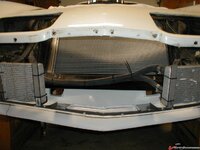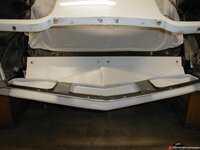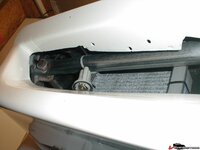496BBC
Well-known member
Ok, here is a EE's take at addressing the question. Maybe there is a thermodynamics engineer out there that can add some credibility.
Oil has roughly 1/3 the heat capacity of water, which means it isn't a very effective coolant. The flow rate of the oil to the point of heat transfer is low in comparison to that of the water based engine cooling system. The delta T of the oil and its heat transfer points is small. ( i.e. engine block, oil pan, etc.) So, for those applications where there is no oil cooler radiator, the effect of oil as an engine coolant is very small in comparison to the primary water cooling system. Which means that you can get much better effect improving your primary cooling system. For those very high demand systems that need to eek out every degree, the oil coolers can help. I would be interested in hearing a more expert and detailed explanation if there is anyone out there who has a better analysis.
I would think the main reason for cooling the oil is to keep the lubrication qualities optimum?????
Bullshark
Bullshark the numbers I've seen have been water does around 40% of the cooling and oil does around 60% of the cooling. I know the water has a higher heat transfer rate but just thinking about it (no science here) oil covers more surface area of the engine. The rings have the job of transfering heat form the piston head to the cylender walls. The rings are cooled by the oil along with just about every machined area in the engine. There is allot of heat transfered to the oil form the engine.
It would be great to have someone in this feild chime in and shed some light on this subject.
I'm still learning form here and through life experiances. As all here know I've been spending allot of time trying to figure my cars cooling issues out.
Neal












